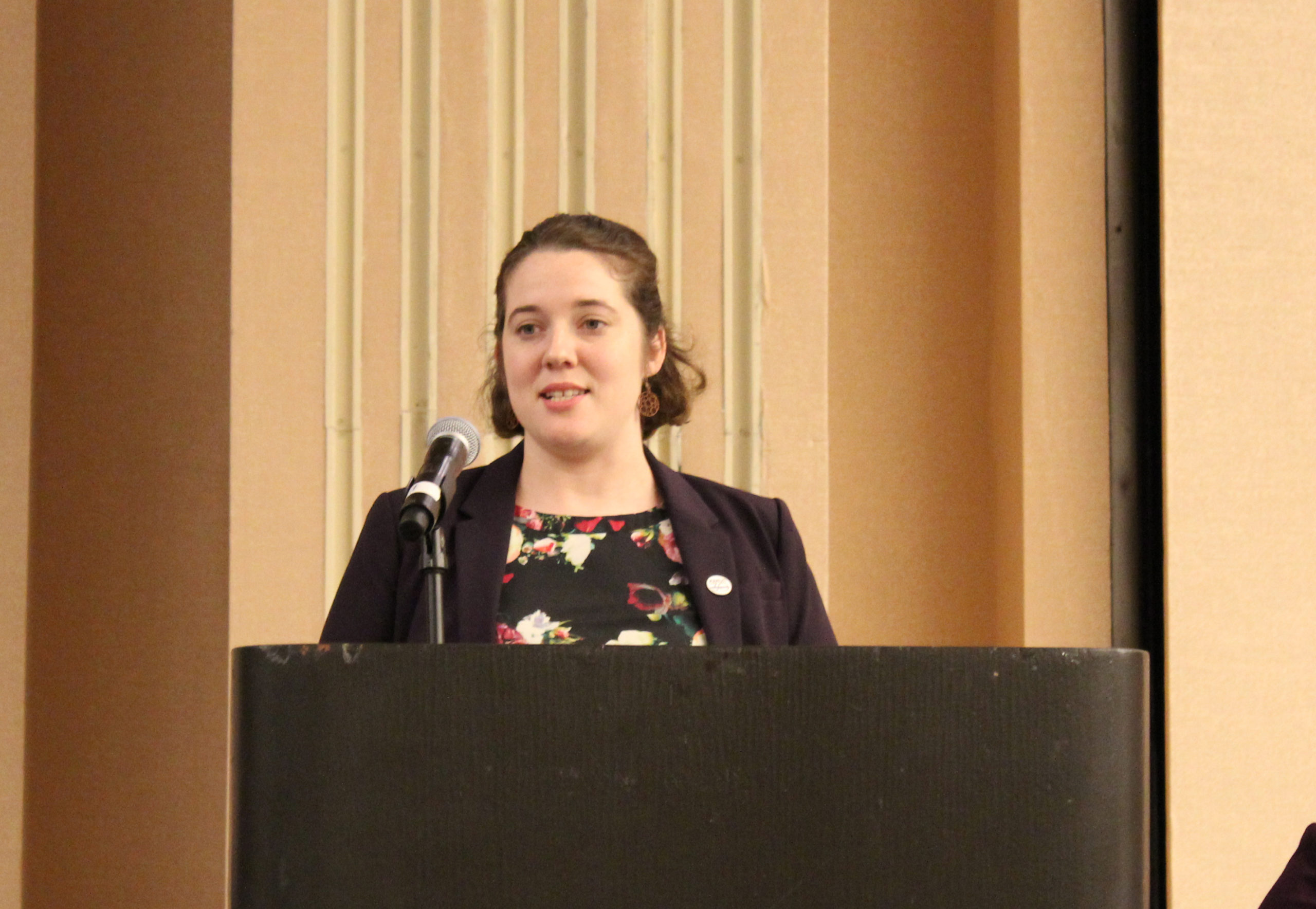
Closing Plenary Remarks for 2019 AMUN Conference

The following are a written copy of the remarks presented at the 2019 American Model United Nations Closing Plenary session. The Session was held from 3:30 – 4:15 p.m. on Tuesday, 26 November 2019. The remarks were written and presented by the 2019 AMUN Secretary-General, Brianne E. Reeves.
Welcome to Tuesday! I and all of the AMUN staff are so proud of you and of all you have accomplished. At the beginning of Conference, I told you that I believed in your ability to meet the high demands of diplomacy. Over the course of your deliberations, your work and cooperation have shown your inordinate abilities in this regard. the Committee on Crime Prevention and Criminal Justice made substantial progress on encouraging transparency between governments and worked to reduce gender discrimination in criminal justice systems across the globe. The General Assembly Second Committee furthered the cause of refugees and migrant populations through increased support for resettlement and making resources more widely available to those affected by migrancy. The Economic Commission for Africa examined the relationship between healthy populations and educational outcomes. And the Historical Security Council of 1961 attempted to restore stability to the world after the tragic, and perhaps suspect, death of the second United Nations Secretary-General Dag Hammarskjold.
You have achieved this, and so much more over the last four days. The resolutions you pass cannot fully describe the depths of your work. Let alone, the things you have learned and the wealth of experiences you have gained. You should be proud of yourselves.
I know you all are tired and so I’ll keep my remarks brief. Like you, the staff walks out of this hotel exhausted, and our family also wonders why we spend our time here knowing that we may have to sleep through Thanksgiving. As someone whose family is especially skeptical of the United Nations and its role in politics, I have had to put this into words many times. But I rarely get to express how much I love model United Nations or the ways I believe it benefits the world to people who understand.
The truth is that there are many days when I go home and watch the news, and my heart hurts. When I think about children starving because of wars or suffering in the wake of epidemics, when I look at world leaders violating human rights because they cannot think of people other than themselves as worthy of compassion, I sit in awe and I worry for you, for my friends’ children and for the generations yet to come. I think that many of us have felt that way recently.
But, when I am here, it’s a reminder of why I choose to believe that people are fundamentally good. And make no mistake, that belief is a choice. One we make every day. There are many days where you all serve as my hope. As my reminder that empathy, compassion, tenacity in the face of struggle are real and that they can succeed.
It isn’t easy to look at a person in opposition to you and credit them with good intention. This is the challenge diplomats face every day: to witness controversy and understand that their opposition comes to the table with a context and lived experience fundamentally different than their own. All of you have just spent four days in an intellectual exercise that challenges your policy understandings and your negotiating skills. But I would argue that the most important part of Model UN is that it is an exercise in radical empathy.
Over the course of the last few days, you have stood in the shoes of people whose beliefs and policy pursuits are different than your own and in some cases those beliefs run counter to your own convictions. This is a lesson that all levels of policy makers, government and neighbors need to learn and live.
Empathy and the willingness to solve problems with understanding and consideration for others needs, hopes and fears is harder than military intervention. It takes more personal investment than economic sanctions ever will. And even though those solutions have their place, solving international conflict through mutual growth and understanding will almost always lead to a better outcome in the long-term. The same is true for domestic issues, citywide conflict and interpersonal relationships. Kindness and active listening will always be invaluable tools in our lives.
And when my family asks me this Thanksgiving why I’ve spent almost a decade of my life in this hotel and with this organization, this is what I tell them. I tell them about the compassion you all exude. I tell them about the respect I see in these halls. I tell them about the hope you all give me for the future of this world.
If I could, I’d thank each of you individually for being an inspiration. Since I cannot do that today, I thank you now. Thank you for showing me that the best in humanity still exists.
As my last official orders of business as Secretary-General for the 30th Annual AMUN Conference, it is my distinct privilege to introduce the 2020 President of the General Assembly Katie Evans. And finally, let me introduce my dear friend, a man who has supported me and been truly integral to this year and 2020’s Secretary-General, Josh Adams. I’ll now turn the microphone over to Josh who will review the AMUN Awards Philosophy and explain this year’s awards procedure.
Keep Up With The Accords
More to read
The AMUN Accords is a premier resource for fact-based Model United Nations simulations. We are always looking for new contributors. Want to write for the AMUN Accords? Check out out the submission guidelines and then get in touch!




